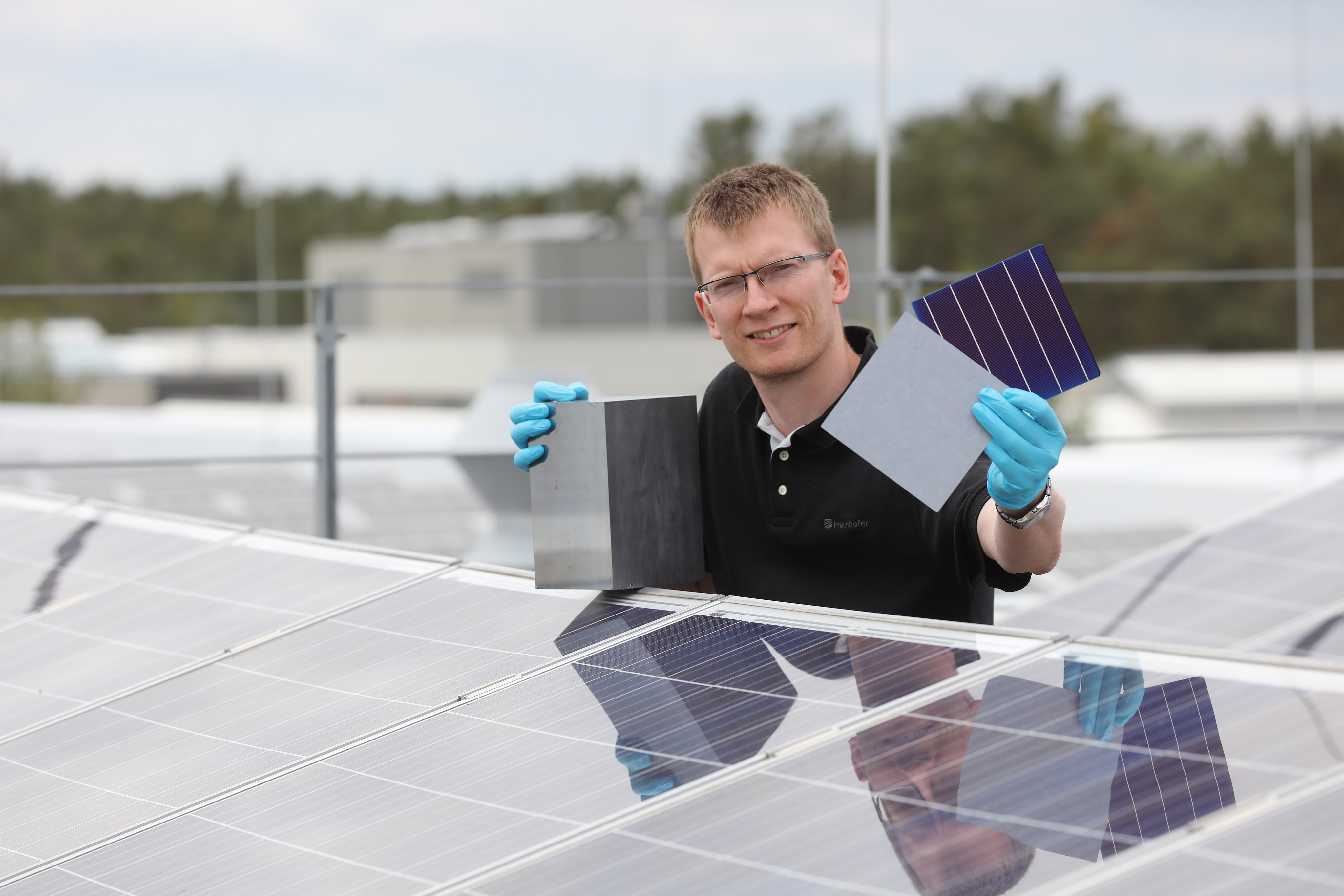Energy Efficient Systems
Solar cells without loss of efficiency

Together with partners from industry and research, Fraunhofer IISB is developing ways to limit the degradation of solar cells.
The use of solar energy through photovoltaic systems is an integral part of today‘s energy supply. Crystalline silicon technologies have a 95 % share of the global photovoltaic market. Current PERC solar cells (Passivated Emitter and Rear Contact) achieve cell efficiencies of over 22 % for monocrystalline and around 20 % for multicrystalline silicon base material. However, this efficiency can gradually decrease by several percentage points.
This is due to various degradation processes, most notably the LeTID (Light and elevated Temperature Induced Degradation) phenomenon. The aim of the joint project “ZORRO”, coordinated by Fraunhofer IISB, is to identify these degradation phenomena and to develop a well-founded zero degradation concept for the industrial production of PERC solar modules. As a possible factor, the occurence of impurities during the production of the wafer material as well as during the processing of the solar cells are investigated.
Fraunhofer IISB contributes its expertise in crystal growth for the production of voluntarily contaminated base material to the research project.
Last modified: